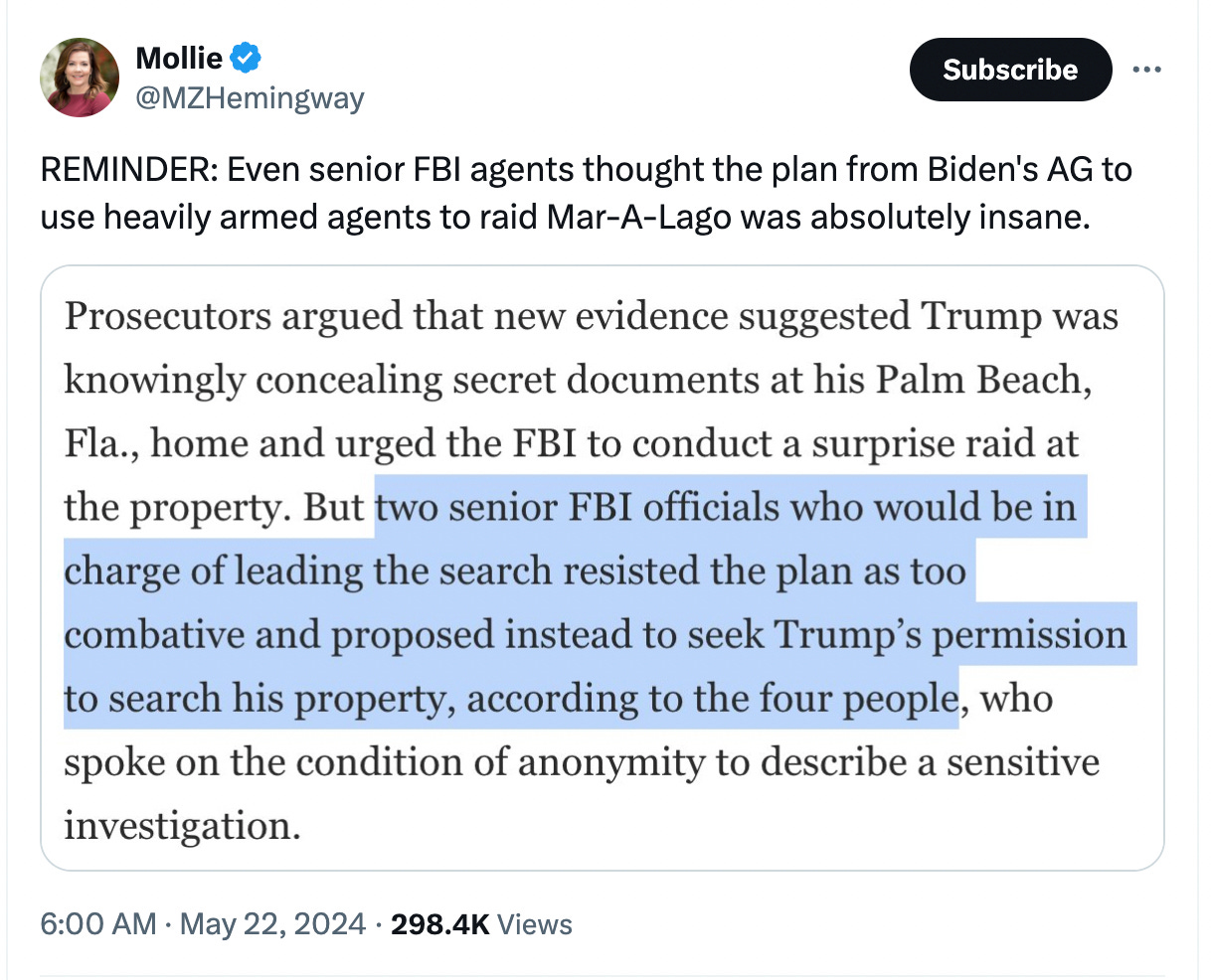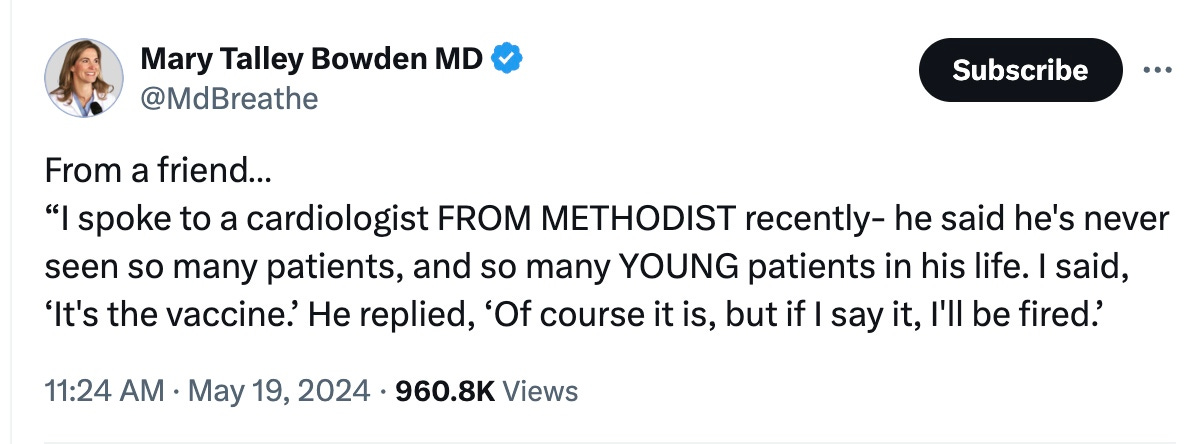We see institutions failing under the weight of their terrible decisions. And then we see this, in an excerpt from the Washington Post:
Or this:
Remember that I wrote recently about Mark Pomerantz, who parachuted into the Manhattan DA’s office on a post-retirement Get Trump mission and kept trying to convince the career prosecutors there to charge the former president with crimes. Over and over again, the career staff reacted with unmasked hostility. They thought he was making horrible arguments, on the basis of bad evidence, using absurd witnesses. They knew better. Something happened to overcome their judgment, but they knew better.
The same goes for Norm Eisen, one of the originators of the lawfare effort against Donald Trump, who started telling people in Congress and insider D.C. that Trump should be impeached — before Trump had even been inaugurated. Again, he tells us himself that other people drew back from his norm-defying lunacy, initially resisting his push for hair-trigger impeachment. They knew better. Something happened to overcome their judgment, but they knew better.
Pick a disaster from the last ten years: There were people in the building — in the institution, in the profession, in the E-ring — who knew better.
The reason I say that the implosion of the information environment is the first and biggest problem is that there are always people who know better, but we’ve crushed the deliberative process in our institutions and in our culture. Are you an ANTI-VAXXER!?!?!? Do you LOVE PUTIN!?!?!? The derangement of our cultural instruments is like breaking all of the navigation instruments on the bridge of a ship, and then wondering why the ship goes off course. “I can’t say that — I’ll get fired!” That’s why we can’t fix anything. We can’t deliberate, so we can’t act with deliberation.
Q: Was the Great Barrington Declaration correct, or was it incorrect?
A: Shut up, conspiracy theorist! Obey Dr. Fauci!
The suppression of disagreement as disinformation or wrongthink, a brand of suppression undertaken to protect institutions, is the thing that’s rendering institutions brittle. The medicine is the poison.
We keep watching institutions make terrible decisions when the institutions are full of people with the knowledge and experience to know better. The problem is not that everybody is an idiot; the problem is that a bunch of people aren’t, but it doesn’t seem to matter.



The problem is that the people who know better put their heads down and keep their mouths shut, because there are severe personal consequences for speaking up. Who’s willing to tell CA that we can’t keep the lights on with only wind and solar? Who spoke up when their unvaccinated colleagues were fired in 2021? Who spoke up when the Jews were rounded up and sent to the death camps? Human nature tends towards one’s own survival.
To pursue the navigation instruments metaphor, the idiots who are running the ship are convinced the only way they can stay in charge is if they make it impossible for their staff to input information into the bridge.
There's no way to enter a destination or a course or even ask "where are we going." And no one is available for escalation of the issues. They don't want any input, any questions, any suggestions. When the ship -- the institution -- goes off course, they'll insist otherwise. They're in command, so they're convinced everything's running as it should.
The very act of disagreement is bad. Those who disagree are bad. A lexicon is created to label them as such, and we all understand.
The staff know better, but they have their own self interests to consider, so after a brief, weak resistance, they're content to ride it out.